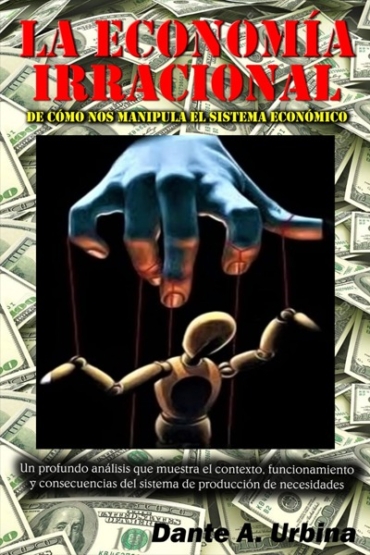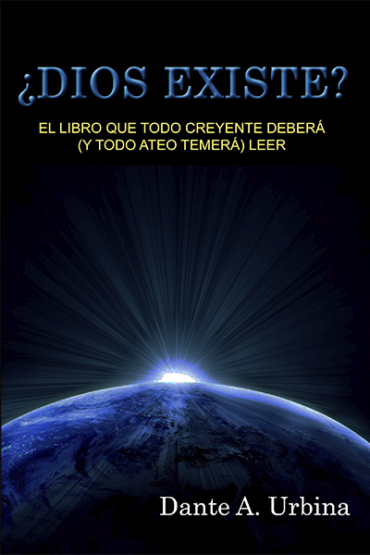
Author: Dante A. Urbina
Edition: Kindle Direct Publishing
Place: Seattle – United States
Year: 2019
Number of pages: 244 pages
Code: ISBN 978-1675999684
Paperback here: https://www.amazon.com/-/es/dp/1675999686/ref=sr_1_4?__mk_es_US=%C3%85M%C3%85%C5%BD%C3%95%C3%91&keywords=dante+urbina&qid=1576599622&sr=8-4
(*) You can read for free the first pages of the book by clicking on its cover here: https://www.amazon.com/-/es/Dante-Urbina-ebook/dp/B082S65K76/ref=sr_1_4?__mk_es_US=%C3%85M%C3%85%C5%BD%C3%95%C3%91&keywords=dante+urbina&qid=1576528132&sr=8-4
RESEÑA DE LA OBRA: This book presents a thorough analysis of mainstream economic theory and refutes its main postulates, namely, (1) consumer rationality, (2) production function, (3) theory of distribution, (4) profit maximization, (5) competitive markets, (6) market efficiency, (7) general equilibrium, (8) non-intervention of the state, (9) free trade, and (10) economic development. In turn, it offers a new framework to re-think economics incorporating the contributions of alternative paradigms such as institutional economics, post-Keynesianism, behavioral economics, neuroeconomics, ecological economics, neo-Schumpeterian economics, structuralism, dependency theory, Austrian school, regulationist school, etc. Moreover, it shows how economics is closely interrelated with psychology, sociology, history, law, political science, etc., so that its contributions are relevant for all social scientists. In sum, this book will radically change your view on economics!
CONTENTS
Foreword
Preface: Economy in crisis and economics in crisis: The necessity of an alternative
Chapter 1: The myth of consumer rationality
The orthodox theory of consumer rationality
A useless function: the utility function
Inconsistent consistency: “Rational fools”
Economic individualism: A universal phenomenon?
Are humans selfish by nature? A critique of the anthropological assumptions of orthodox economics
Egoistic altruism? Ockham’s razor and Mother Teresa against orthodox economics
Reasons of the heart: The ethical factor in economic decisions
An avalanche of anomalies: homo economicus visits the psychologist
Homo economicus goes to the laboratory: Experimental economics
Do not forget the brain! An encephalogram to the consumer
We are not omniscient! The problem of bounded rationality
We are not cold calculators! The problem of uncertainty
Conclusion
Chapter 2: The myth of the production function
The orthodox theory of the production function
The “Holy War” over capital: The Cambridges controversies
Killed with its own sword: Mathematics against orthodox economics
The production function is castrated: The incapacity of the orthodox theory to explain the technological process
With what shall we produce? Critique of the production function from an ecological perspective
A supposition that we have to substitute: The assumption of substitutability
The final blow: The fallacy of the empirical validity of the production function
Conclusion
Chapter 3: The myth of the theory of distribution
The orthodox theory of distribution
An unproductive concept: The fallacy of the “marginal productivity”
A theoretical anomaly that is quite common in reality: The Leontief production function and the marginal productivity
A theory that is not replaced due to laziness: Leisure and labor supply
Is the notion of free and competitive labor markets pertinent? The institutional critique
To each according to his contribution? The case of multi-product firms
Is labor merely a cost? A critique from Keynesian and neo-Keynesian economics
The final blow: Sraffa’s devastating critique of the orthodox theory of distribution
Conclusion
Chapter 4: The myth of profit maximization
The orthodox theory of profit maximization
Against the fallacy of the “mechanical optimizer”! The Schumpeterian entrepreneur
“Animal spirits”: The problem of uncertainty
Maximize profits or minimize losses? The problem of risk
Behavioral economics strikes again: The problem of perspective
The consequences of a divorce: The agency problem
The consequences of technological change: The power of the technostructure
An inconvenient truth: The possibility of seeking other goals
MR = MC: And where is the evidence?
Conclusion
Chapter 5: The myth of competitive markets
The orthodox theory of competitive markets
The fallacy of free and competitive markets: The planning system
Everyone against everyone? The law of duality
Market and power: The social structures of the economy
The disappearance of the invisible hand: The birth of strategic thinking
Scissors that should be cut: The supply and demand curves
Extreme unrealism and contradictions: Analysis of the assumptions of the perfect competition model
A terribly imperfect theory: Logical inconsistencies of the perfect competition model
Failed redemption: A false messiah named “method of successive approximations”
Conclusion
Chapter 6: The myth of market efficiency
The orthodox theory of market efficiency
The markets are not omnipotent! The problem of market failures
Efficiency for what? The uncomfortable issue of the content and goals
A non-optimal criterion: Pareto optimality
Efficiency for whom? Market and exclusion
Fair injustice? The fallacy of the “previous voting process” and the “meritocratic scale”
Destroying a dogma: The fallacy of consumer sovereignty
Does competition lead to efficiency? John Nash vs. Adam Smith
A misinformed argument: The market as synthesizer of information
An endogenous explanation of the crisis: Minsky’s financial instability hypothesis
Conclusion
Chapter 7: The myth of general equilibrium
The orthodox theory of general equilibrium
A castle in the clouds: The exaggerated abstractionism of the general equilibrium theory
Inconvenient commentaries: Analyzing the pertinence of the assumptions of the general equilibrium theory
The mirage of relative prices: The non-existence of the general equilibrium
An unprofitable theoretical transaction: The excessive costs of uniqueness
Destabilizing the stability: The Sonnenschein-Mantel-Debreu theorem
Stability and sterility: The absolute uselessness of general equilibrium
Can the DSGE model save mainstream economics? Confessions of an orthodox economist
Conclusion
Chapter 8: The myth of non-intervention of the state
The orthodox theory of non-intervention of the state
Good for nothing? The fallacy of the intrinsic inefficiency of the state
Saved by the State: The industrialization of Germany, Russia, Japan, and China
What is corrupt in the argument about corruption: Critique of Friedman and the public choice school
“Who disturbs the least helps the most?”: The role of the state in the promotion of economic efficiency
Seeking “the optimum” is not always optimal: The Lipsey-Lancaster theorem
In defense of economic policy: Critique of monetarism and the theory of rational expectations
Stuck between a sword and the wall: Totalitarian state versus market totalitarianism
Neoliberal hypocrisy: Neoliberalism, dictatorship and other demons
Conclusion
Chapter 9: The myth of free trade
The orthodox theory of free trade
Welfare for everyone? The Singer-Prebisch critique of theory of comparative advantage
Porter’s critique: Competitive advantages versus comparative advantages
Why is there no equalization of factor prices? Critique of the Heckscher-Ohlin model
Neoliberal hypocrisy once again: Kicking away the ladder
The development of underdevelopment: The problem of circular cumulative causation
The law of the jungle and globalization: International Darwinism
The great fraud: The United States and the Free Trade Agreements
Refuting Henry Martyn: Fallacies in the analogy of free trade and technological progress
Conclusion
Chapter 10: The myth of development
The orthodox theory of development
What can be measured and what cannot be measured: The fetishism of the GDP
The obsession with development: The error of the absence of choice
I’m rich! But, why am I not happy? The “paradox of happiness”
Persons or merchandise? The personalist critique of the orthodox theory of development
Is the road to heaven paved with bad intentions? On the good, the beautiful, the dirty, and the useful
Development for all? The fallacy of universal prosperity
Is it only a matter of time? “Schumpeterian underdevelopment” and dependency theory
Predestined enemies: Orthodox theory and underdeveloped nations
Conclusion
Epilogue: “What is to be done?”: Towards a new economic theory
About the author
Conversations with Nobel laureates











